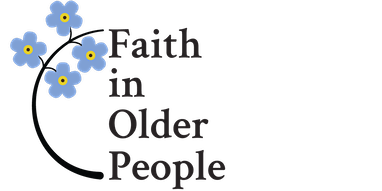In times like these it is easy to feel low or overwhelmed, and to forget that we have basic needs. It’s also easy to feel that looking after ourselves would be selfish, especially when we are looking after people who are dependent upon us or in seeming greater need than ourselves. And yet, when we are in caring for others, it is all the more crucial that we care for ourselves. In this blog, the Chaplain to the University of Edinburgh, Revd Dr Harriet Harris, dismantles the myth of selfishness, and shows us a way to understand and meet our needs.
I don’t know if it is a cultural thing, but we easily fear being selfish, or being thought to be selfish, and this fear can stop us from attending to our own needs.
Needs are the things without which we are not ok. Needs are not luxuries or negotiable items that are ‘nice to have’. They are ‘must-haves’ if we are to be ok. It makes a huge difference to our lives to give ourselves permission to meet our needs. When we are not meeting our needs, we are not even at base-line. When we are not up to base-line, all of life feels hard. We can find ourselves running on empty when trying to support others and trying to sustain ourselves.
So how can we work out what we need, and then make sure our needs are met?
Here is a process that we use in Abundant Academy, and it is making a big difference to our lives.
First, get a pen and paper, and make a list of your needs in four different categories:

- Physiological/bodily (e.g. food, water, sleep, hygiene, meds, exercise)
- Psychological/emotional (e.g. music, reading, exercise, creative activities, journaling, being in nature)
- Relational (e.g. connecting with myself, my family, my friends, and how often?, social media or not, phone-calls or not?)
- Spiritual (what helps us to feel that we are part of something bigger than ourselves, and to find meaning and purpose? e.g. being in nature, journaling, connecting with myself, connecting with the divine, music, being creative)
Distinguishing these different areas helps us to ensure that we are covering all the bases. There will be overlap, and it is very helpful when one activity, such as a walk in nature, can meet our bodily, psychological, relational and spiritual needs.
So edit your list. If you have 2O needs, you may find that you can double many of them up, e.g. ‘I need exercise: a run, or walk, or bike ride, or yoga every day’; ‘journaling 4x a week helps me meet my psychological and spiritual needs, as well as my need to relate to myself’.
You want to have c 8-12 needs on your final list; a manageable number. And you want to be as specific as you can: not just ‘food’, but how many meals and snacks a day?; do you need extra iron or protein, for example?; what forms of exercise and how often?
What about desires and luxuries, such as chocolate? It’s great to have the icing on the cake, and, with the occasional exception, we want it on the cake, not instead of the cake! If desires and luxuries are substitutes for our needs, our needs are still not met, and so we still suffer. Alcohol when we’re happily connected with ourselves, friends or family, can magnify the fun. As a substitute for connectedness, it can leave us despondent and heading towards depression. Likewise, Netflix: great as the icing, but we start to feel gross when it becomes the whole cake!

A Mars Bar shoved down at 4pm because we missed lunch leaves us gloomy (once the sugar high has worn off), and our nutritional needs stay unmet. Chocolate with a coffee at the end of lunch? Yes, bring on the joy!
A list of needs may look something like this (though you need to make your own bespoke list):
- 3 meals a day + Vitamin D
- 2 litres of water a day
- 8 hours sleep a night
- Time reading a novel
- Time in nature every day, even if just 5 minutes
- A run 3x a week
- daily prayer/meditation/yoga
- speak to parents every weekend
- music every day
- time to myself for reflection, at least 20 minutes each day
- connecting with a close friend at least every other day
Once you have your list, place it somewhere accessible, such as your fridge, desk or cupboard. When your day goes awry and you are tearful at a chance comment or a broken plate, you can check against your list: you may discover that you are underslept, have skipped lunch, haven’t spoken to a good friend in two weeks, and have totally forgotten how music lifts your spirits. So the good news is that you can then address these lacks: have some lunch, get an early night (rest even if sleep won’t come), put on some music, and message a friend.
It sounds basic, and it truly is!
The sorts of insights we can have when we do this exercise might be:
I’ve realised I’ve forgotten to listen to music for a whole month; I’ve let weeks go by without contacting friends; I’m not happy if I haven’t checked in with my mum; I now notice that I get crabby when I’m hungry (I might not notice that I’m hungry, but I do notice that I’m tetchy); I’m restless if I haven’t got some fresh air; I lose clarity if I don’t have time to myself each day; I’m grumpy if I haven’t had enough sleep.
And the converse of all these are the positives:
I can take things in my stride when I’ve had good food and sleep; I actually feel joy when I am reflecting on my own on a walk; I’m loving dancing to music in lockdown; I am connected again.
When we feel buoyant like this, a chance comment or a plate that we break while doing the dishes may barely affect us. We can start to anticipate and hope for more, we can feel creativity coming back, and we can be there for others because we are there for ourselves.
Revd Dr Harriet Harris
University Chaplain and Head of the Chaplaincy Service, Edinburgh University
15 March 2021

